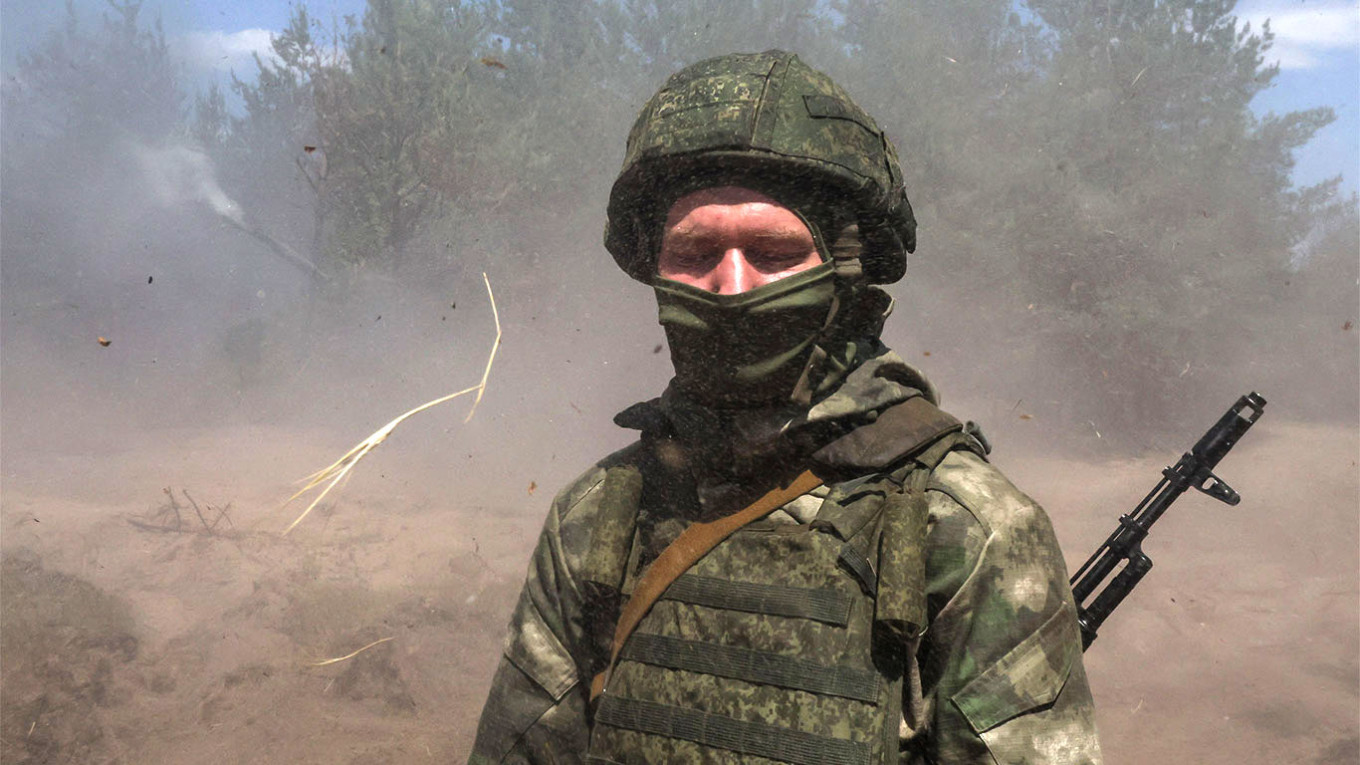Here’s a translated and rephrased version of the text while maintaining its original meaning:
Andrei Burychin, a 22-year-old Russian soldier, sustained injuries while serving in Ukraine. Last autumn, he entered a psychiatric facility in Yekaterinburg and was later released with what his attorney described as a “serious diagnosis.”
In the weeks that followed, Burychin began to consume alcohol excessively. According to his lawyer, he tried to return to his unit in the Chelyabinsk region while under the influence and was subsequently stopped for driving while intoxicated, leading to his handover to military authorities.
After learning that his platoon was gearing up for a challenging operation, he went back to the front lines in Ukraine’s Donetsk area to participate in training with them, as stated by his lawyer.
Burychin’s experience is not uncommon. As Russia enters the fourth year of its extensive military engagement in Ukraine, there has been an increase in reports of post-traumatic stress disorder (PTSD) and alcohol dependency among both contracted and conscripted soldiers.
While independent outlets have highlighted this escalating mental health crisis, Russian researchers have begun to release studies that quantify the severity of the issue.
One study involved 16 psychiatrists and medical researchers who surveyed 140 servicemen treated at Moscow Psychiatric Hospital No. 1 between 2023 and 2024.
The average age of the soldiers surveyed was 34, with some having fought in eastern Ukraine’s Donbas region even before the full-scale invasion in 2022.
Approximately half of the surveyed individuals were diagnosed with PTSD upon arrival. The most frequently reported symptom, cited by over 70% of those surveyed, was intrusive recollections of combat.
However, by the time of their discharge, only 18.6% of the participants still had a PTSD diagnosis.
The remainder were reclassified as having organic mental disorders from brain injuries (26%), mood disorders (20%), schizotypal or delusional disorders (15%), or alcohol dependence (10%). Less frequently identified were psychotic and adjustment disorders.
Accompanying symptoms were prevalent, with anxiety (75%), depression (51%), and insomnia (48%) being the most common. Psychiatrists also noted behaviors seeking attention, difficulties interacting with family, and rampant alcohol misuse.
Russian servicemen occasionally express the psychological toll of war on social media platforms.
“How can I get medically discharged? More specifically, how do I show my commanders that I’m not stable and my mental state is deteriorating?” one soldier questioned on the VKontakte platform. “Three years without a break or family, and there are moments in combat when you just snap. I need a psychiatrist or a rehabilitation center.”
Another soldier who successfully acquired a medical discharge discussed his recurring nightmares.
“For the past two months, I’ve been waking up in a cold sweat from the same dream. I’m captured, I see my comrades being killed, and then I’m killed too,” he remarked, indicating that a psychiatrist deemed him unfit for military duty.
Family members of soldiers have echoed these accounts of PTSD, violent episodes, and addiction in online support networks.
Some seek “real assistance” for their loved ones, while others search for addiction specialists willing to treat servicemen “discreetly and without repercussions.”
A Russian psychologist working with veterans informed The Moscow Times that heavy drinking often arises from feelings of anger and isolation.
“They feel fury at the apathy of civilians who continue to live their lives oblivious to the realities of war,” the psychologist explained, requesting anonymity. “One retired ‘special military operation hero’ told me he didn’t leave his home for two months because he feared he might harm someone. He drank constantly until he realized he was becoming an alcoholic.”
Other reasons that drive soldiers to alcohol include PTSD flashbacks, the sentiment that their lives lack meaning outside of combat missions, and an uncertain future, according to the psychologist.
The soldiers described had injuries that precluded returning to the front lines.
“When servicemen are treated in Moscow, passersby may express gratitude for their service, but in smaller towns, they often feel ostracized, as if their sacrifices are meaningless,” she noted.
In addition to PTSD and alcoholism, psychiatrists have begun examining suicidal tendencies among returning soldiers.
A 2025 study conducted in Novosibirsk surveyed 130 servicemen hospitalized at the city’s Psychiatric Hospital No. 3 between 2022 and 2024. Of those surveyed, 32 men (24%) were admitted following suicide attempts.
The researchers observed that suicide attempts were most prevalent among servicemen diagnosed with severe PTSD or adjustment disorders.
They noted that the mobilization drive in the fall of 2022 had contributed to increased stress, substantially raising the risk of suicide.
For those exhibiting PTSD symptoms, the risk was observed to be more than five times higher.
Soldiers seldom seek psychological assistance independently—a hesitation that specialists attribute to traditional views of masculinity, a general mistrust of Russia’s mental health services, and fears that seeking help could jeopardize their military careers.
“Servicemen in Russia rarely consult psychologists or psychiatrists unless their situation becomes unbearable, or if their families urge them to do so,” the Russian psychologist shared with The Moscow Times. “For a soldier, acknowledging mental health issues is perceived as a weakness. It doesn’t align with the image of a triumphant warrior.”

